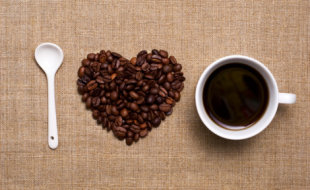
Up
until today, I was proud of my coffee brewing abilities. I'd splurge on the
Starbucks espresso roast at the grocery store and store it in the freezer for
maximum freshness. I scoffed at the suggested measurement on the back of the
bag, and heaped twice the amount of grinds in the filter for what I always
imagined was the strongest, most Roto-routing cup of hot homeade
over-the-counter drugs a girl could ask for.
Now I know I was doing it all wrong. Ask a real coffee brewing professional
(and I did), and you'll find there are a some things you just have to do when
brewing coffee--none of which were on my morning regimen.
The good news is there are
also some don'ts: you don't need to buy a $15,000 brewing system, the kind now
found in "third wave" coffee shops and select Starbucks around the country, for
a solid cup. You don't even need to buy the fanciest grinds in the grocery
store.
According to the pros, all you need for the perfect morning coffee are a few
low-cost tools and some guidelines on the basics of brewing.
Do: Read the Labels
I'll admit, I'm a sucker for coffee art. Show me an exotic looking logo or
the words "espresso blend" and it's going in my shopping cart. But according to
Matthew Marks, co-owner of Forty Weight Coffee Roasters in Brooklyn, I've been
looking in all the wrong places. "I would steer clear of an espresso blend if
you're not brewing espresso," Marks tells Yahoo! Shine. Just because the word is
Italian, it doesn't mean it's going to make the best cup of drip coffee. He
recommends spending more time reading the fine print. "Look for signs of single
origin brewing from one particular region or farm," suggests Marks. "A lot of
companies will have generic blends, and you don't know what's in the them. The
more specific information on the bag is a sign of higher quality."
Another tip: Fair
Trade isn't always the best fare. The New York Times' Matt Richtel learned this at
coffee boot camp with Verve's Coffee's Chris Baca. "Just because the bag says
"fair trade" or "locally roasted" does not mean the highest-grade beans have
been selected and put through meticulous roasting," writes Richtel.
Don't: Buy pre-ground beans My fellow lazy
coffee-brewers, it's time we face the facts. Freshly ground beans make for
better coffee. "Your best bet for coffee longevity is always whole beans," says
Marks. It doesn't matter if you grind the beans in the grocery store, the minute
you've mashed your java it's already losing its flavor. Blame oxidization or the
cruelty of nature, but the fact is a cheap grinder is a better investment than
pricey bag of pre-ground coffee.
Don't: Store your beans in the freezer Shoot. For a few
dollars, Marks suggests purchasing an airtight container at any home goods
store. That's your best bet for storing beans. Keep the tin on a shelf, away
from sunlight, and definitely don't let it near the fridge. The freezer and
fridge adds moisture to your beans, cutting down the flavor and replacing it
with remnants of that stale Chinese food from last week.
Don't: Eye-ball your measurements The best tool for a
perfect cup of joe, aside from a coffeemaker, is a scale. Cheap ones run for
less than $10. The investment is worth the price, according to Verve's Baca and
Forty Weight's Marks. "The most important thing to remember is consistency,"
explains Marks. "Scoops are not very accurate, so you need a scale to weigh
things out. " Just because you're heaping loads of grinds into your filter, it
doesn't mean your coffee will taste better. Measurements are the key to rounded,
full-body flavor. (The gold standard, says Marks, is a 16 to 1 ratio-16 grams of
water to 1 gram of coffee.) Morning math is hard, but it's okay to fiddle with
measurements in pursuit of your personal brewing boldness. Your scale can do the
counting.
Don't: Use tap water Got a Britta? Use it. The Specialty Coffee Association of America found that minerals in tap water taint an otherwise decent cup. Filtering your water (which should be brewed at a temperature of 195 to 205 degrees if you want to get really technical) makes all the difference.
Don't: Use tap water Got a Britta? Use it. The Specialty Coffee Association of America found that minerals in tap water taint an otherwise decent cup. Filtering your water (which should be brewed at a temperature of 195 to 205 degrees if you want to get really technical) makes all the difference.
Don't: add milk If you've just put all that hard work
into making the perfect coffee, why not show it off? "For me I don't think any
milk helps coffee," says Marks. "I think people are used to dumping tons of milk
and sugar because they're used to bad coffee, but if you're brewing good coffee,
you're basically covering up all the nuances with milk." If you're a Latte
lover, however, milk is part of the show. Just don't make it skim. "The more
milk fat the better the coffee steams," says Marks. "Whole milk, not skim, is
industry standard." I don't know about you, but after all that grinding and
weighing, I'll be taking mine black.





No comments:
Post a Comment
Through these open doors you are always welcome